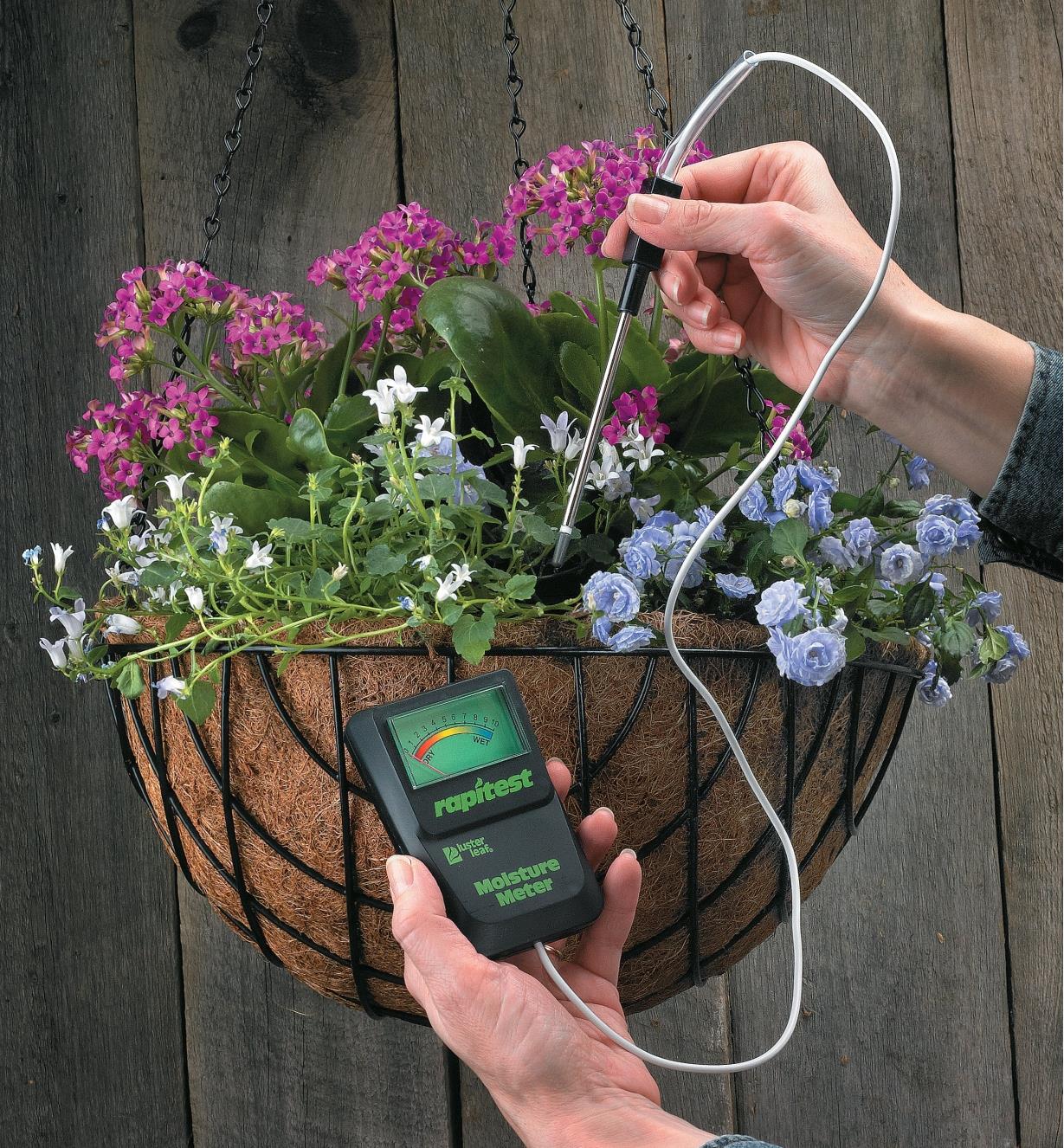How to Use a Moisture Meter to Discover Concealed Water Damages in Your Residential property
Wiki Article
The Ultimate Guide to Moisture Meters: A Comprehensive Introduction and Just How They Can Save You Cash
In the world of building maintenance, building, and different sectors, the significance of accurately gauging dampness levels can not be overstated. Moisture meters offer as crucial tools in discovering and keeping track of moisture material in materials, assisting in avoiding expensive problems and making sure the quality of items. Understanding the subtleties of different kinds of wetness meters, their applications, and the prospective cost-saving advantages they use can be a game-changer for experts and services alike. Uncovering exactly how these tools can not only enhance procedures yet likewise add to financial savings is a trip worth getting started on.Kinds Of Moisture Meters
One typical type is the pin-type dampness meter, which measures the electrical resistance between two pins inserted into a material. Pinless moisture meters, on the various other hand, use electro-magnetic sensing unit plates to scan a bigger area without causing damages to the material's surface.Infrared wetness meters measure the thermal properties of a material to identify its moisture content non-invasively, making them useful for applications where pin or pinless meters might not be ideal. Recognizing the different kinds of moisture meters readily available can help industries pick the most ideal tool for their details wetness dimension requirements.

Benefits of Utilizing Moisture Meters

In addition, making use of dampness meters can cause enhanced power effectiveness. By identifying locations with high moisture degrees, such as leaks or poor insulation, changes can be made to enhance energy conservation and reduce utility prices. In agricultural settings, moisture meters play a crucial role in optimizing plant yields by making it possible for farmers to keep an eye on soil wetness degrees and make educated watering choices. Overall, the advantages of using dampness meters cover across different industries, giving economical services and advertising better top quality control practices.
Exactly How to Pick the Right Moisture Meter
Picking the suitable wetness meter involves considering essential factors such as product compatibility, measurement range, and calibration precision. When selecting a moisture meter, it's important to ensure that the meter is appropriate for the particular material you will be testing. Different materials have varying electrical residential properties that can affect wetness readings, so picking a meter designed for your material is crucial for precise results. In addition, think about the measurement series of the wetness meter. Guarantee that the meter can find moisture degrees within the range needed for your applications. Calibration accuracy is another vital variable to maintain in mind (Moisture Meter). Decide for a moisture meter with trustworthy calibration to make certain constant and precise analyses. Some meters might require routine calibration modifications, so comprehending the calibration procedure is very important. By thoroughly assessing these factors, you can pick a dampness meter that satisfies your requirements and offers exact dampness measurements for your tasks.Appropriate Methods for Moisture Meter Usage
To ensure exact dampness readings and maximize the efficiency of a wetness meter, using proper methods is vital. When using a pin-type wetness meter, put the pins or probes into the material being checked until they click to investigate make complete contact. Ensure the pins are vertical to the surface area to obtain one of the most specific reading. For pinless wetness meters, hold the device level against the product and relocate it slowly to cover the whole location for a typical analysis. It's vital to adjust the moisture meter according to the material being tested to enhance accuracy. Take numerous analyses throughout the surface and ordinary them out for an extra trustworthy outcome. In addition, ensure that the product being checked is accustomed to the setting to avoid skewed analyses. Routine maintenance of the moisture meter, such as cleaning up the pins or sensing unit, is additionally essential to ensure regular and exact readings. By complying with these proper techniques, customers can count on their dampness meter to give reliable moisture levels, assisting in preventing pricey damages or guaranteeing top quality in different applications.
Expense Savings With Moisture Meter Applications
How can the strategic utilization of moisture meters lead to significant cost financial savings throughout numerous industries? In the agriculture market, moisture meters help in determining the optimum time for harvesting plants, preventing excess or over-drying wetness that can affect the last product's high quality.

In addition, in the food handling industry, moisture meters are important for keeping track of product top quality and guaranteeing compliance with security regulations. By properly determining dampness web content in foodstuff, producers can stop perishing, preserve freshness, and lower waste, resulting in significant expense savings. Overall, the critical application of moisture meters is a beneficial investment that can cause significant expense reductions and boosted performance throughout various markets.
Verdict
In verdict, wetness meters are important devices for detecting and measuring dampness degrees in numerous products. By using the appropriate dampness meter and following appropriate methods, customers can successfully protect against costly problems caused by check this site out excess moisture.Wetness meters serve as indispensable tools in spotting and keeping track of moisture material in materials, helping in stopping expensive problems and making certain the top quality of items. Infrared wetness meters measure the thermal homes of a material to determine its moisture content non-invasively, making them useful for applications where pin or pinless meters might not be ideal.Moisture meters provide very useful benefits in precisely assessing and monitoring moisture degrees in diverse materials and environments. find out here now In farming settings, dampness meters play a crucial function in maximizing plant yields by making it possible for farmers to monitor soil wetness levels and make educated watering choices.In conclusion, moisture meters are important tools for gauging and detecting moisture levels in different products.
Report this wiki page